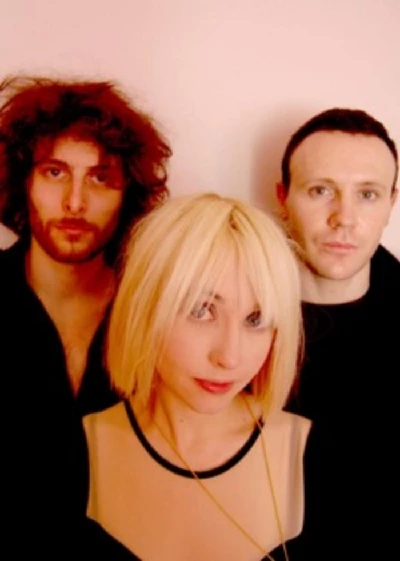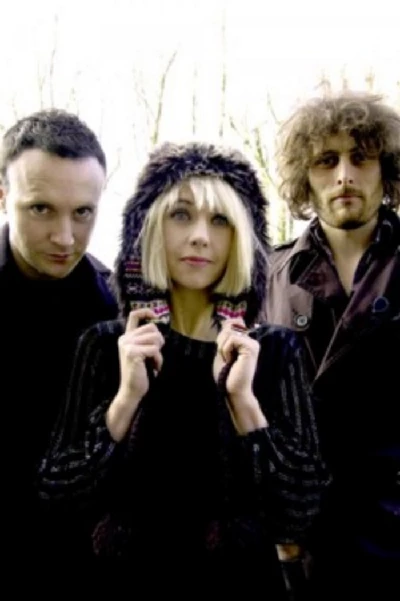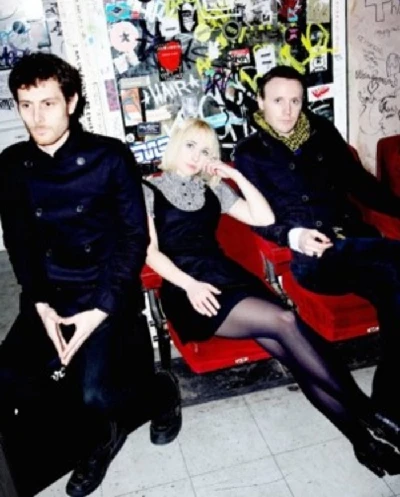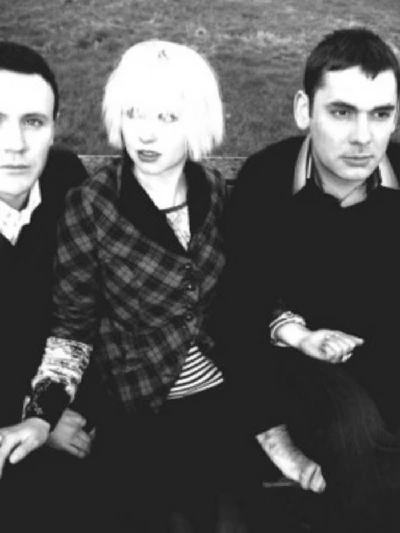published: 21 /
2 /
2011
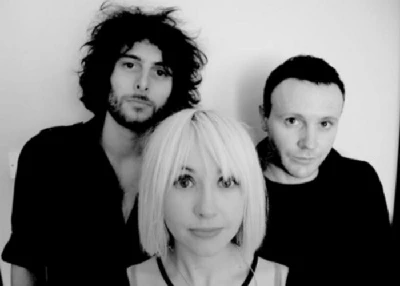
Guest interviewer Martin Metcalfe speaks to Ritzy Bryan from acclaimed Welsh indie band the Joy Formidable about her musical influences, playing America and bootlegging childhood
Article
The Joy Formidable must qualify as Britain's new golden band.
The Welsh group are now famous for their riveting live performances and boast Britain's only truly gorgeous and gifted female guitarist and vocalist of the moment, Ritzy Bryan. Ritzy and her co-writing bass-playing partner in crime Rhydian Dafydd formed the Joy Formidable in 2007, taking on drummer Matt Thomas in 2008, and they have been creating a buzz ever since. The likes of 'NME', 'The Guardian' and BBC 6 Music love them and they have more recently been added to Radio One's much sought after daytime playlist.
Described by some as "dreamy indie pop", the rock edge to the Joy Formidable, however, defies that tag. The band is a mixture of post punk, post-grunge, dreamy musical landscapes and Celtic melody. Their eight track debut mini LP, 'A Balloon Called Moaning', raised eyebrows all over the UK indie music scene in 2009 and since then they have travelled the globe and as far afield as Australia and Japan played to many a delighted crowd. Their new LP entitled 'The Big Roar'is out now and causing a great deal of excitement. It has charted at the respectable position of number 31 which is good going for a band who have done things on their own terms for the last the years.
I spoke to Ritzy and the Welsh charmer told me of her musical influences and a vaguely criminal past.
MM: Are there any female singers and guitarists that you loved in, say, the 1990s?
RB: Yeah, of course, there are many female artists that I loved in the 90s The two main artists that spring to mind are Cerys Matthews of course. She meant a lot to me being a young teenager growing up in North Wales and I also loved Shirley Manson. She was a great charismatic sassy front-woman.
But ultimately, if I was looking at female-fronted bands, I would have to looki at Patti Smith, Chrissie Hynde and Bjork. They would be the main female icons from me.
MM: I can hear other elements in your sound. There are some complex time signatures in the music that have been used by the Pixies and PJ Harvey. Are they also an influence?
RB: Yes, very much. I've yet to get PJ Harvey's new LP, 'Let England Shake', but I've been very much waiting for that. And the Pixies, of course, have created timeless classic songs and albums.
MM: Did you listen to any of the Riot Grrrl movement bands from the early 90s?
RB: No actually I didn't. Obviously we get a lot of references levelled at us. Occasionally the word, 'Shoegaze', comes up and we certainly get “the wall of noise" references, My Bloody Valentine and the Cocteau Twins. But these bands were definitely later discoveries by me after other people compared us to them. And I've listened to those bands more since people have cited them than I did before before we started writing our songs.
MM: You are an adept guitarist. Did you start playing young?
RB: Yes, I did start playing young but it was a totally different discipline. I learned some classical guitar at school. Then I went on and had a phase as a singer-songwriter. I always enjoyed playing on my own.
MM: Was it easy to for you to learn? Was it in the genes?
RB: I suppose it has always been in me to some degree. I always had a passion for the guitar, put it that way! Being an only child growing up in the backwaters of North Wales, I also had plenty time on my own to play and write songs.
MM: Did you have an fairly idyllic background then similar to PJ Harvey who grew up in the rural South West of England. It's strange how angry music can sound coming from these beautiful places.
RB: Where I live is not massively isolated, but I suppose I do stay in the sticks. So yes it was a very rural upbringing.
MM: PJ Harvey cites Bob Dylan as a catharsis in her musical education and I'm sure I've heard you say the same. Were your parents into Bob Dylan?
RB: Yes that's true. My parents were also avid gig goers. They were very into taking me to concerts as early as they could. I think I was seven years old when I went to the first show with them, I think they had ulterior motives though. They were very into their bootlegging.
MM: Really!?
RB: Yes, I was a great carrier of equipment without getting searched. Nobody was going to search a seven-year-old girl with microphones stuffed in her pinafore.
MM: That's fantastic!
RB: Yes, it's good, isn't it?
MM: That's a low-level criminal childhood you had going on there. So, from a very young age then you felt the excitement of gigs and even some of the dodgy behaviour? That's almost as good as the Sex Pistols stealing equipment from David Bowie to get their band started. Did you listen a lot as well to the original punk bands like X-Ray Spex?
RB: Not as much to be honest. I definitely came across a few Sex Pistols records in my mum and dad's collection which kind of blew my mind at the time. I was very fortunate to have such a great musical education. I have to say that when I was growing up the music that was played in my home was mainly Elvis Costello, Van Morrison and Bruce Springsteen.
MM: You were exposed to a great deal of melody then?
RB: Yes, definitely and the craft of really, really good songwriting and that lyrical power. Also my mother was really into her Motown and 60s soul. Those records have a great deal of emotive power.
MM: You have been touring a lot in America. How have you enjoyed that?
RB: We have a new deal in America and we've had a great experience there, but we are happy wherever we tour to be honest. We have a great fan base who have been incredibly loyal and supportive with the music that we been putting out there. We supported Passion Pit in America and all the shows that we played there with them we were happily surprised to see that they sold out.
MM: Another thing I was interested in is the artwork. Is the artwork created by Rhydian?
RB: It is. The visual side of us is always closely linked to the music and Rhydian does a great job of representing it visually. He's a wonderful artist and I think it's amazing how he captures the lyrical side of the music and has both mediums working together.
MM: Yes, it's really nice and really represents the music perfectly. Did he go to art college?
RB: I think he's always drawn, but he has never had an official training or gone to college to study it. It's definitely in his genes. He's a natural artist. His art has become just as much a part of the band as the music.
MM: You have also remixed music for other bands, haven't you?
RB: Yes, and we would like to do a lot more if we have the time,
MM: Did it help to pay the rent?
RB: Definitely not! It was just something we enjoyed doing. It was something that we did for bands we liked or in exchange for favours. It's just finding the time that is difficult these days. Otherwise we would do more of that.
MM: Is it hard to write songs now that you're on tour so much?
RR: No, we are not finding that, but we don't worry too much if we haven't written a song in the last week or two. I think you have to have a bit of a relaxed outlook on writing. Creativity is meant to be a very natural thing. I do think you have to be adaptable if you want to be a touring band.
I actually find travelling very inspiring anyway so I think it feeds my creativity. In a way touring is probably the most peaceful time we have. We get more time to ourselves on the road than we do when we are at home. There is a certain freedom on the road that I love.
MM: Where do you record your music?
RB: We have recorded most of music in our tiny bedroom in London. It's all very modest, just straight into the computer using plug-ins. Most of our mini LP didn't have proper guitar amps on it. We just had to do it the cheapest way possible at the time. Some of the tracks on the new LP have been produced by Nick Costey (Glasvegas, Foo Fighters-MM).
MM: You have been involved personally in recording some of the tracks. The engineering side of things is usually a boys' game. Are you quite technically skilled?
RB: I suppose I am up to a point. I like to record vocals and guitar on my own, but I'm not too technical. I like to experiment and break the rules of recording. I love experimenting with guitar sounds. There are practically no synthesizers on the LP. It's mainly all guitar textures. I love messing with pedals. I have quite a disgustingly large effects board which I use on stage. I'm going to have trouble getting on board the next plane I reckon.
MM: Your band seems to have been managed very well from the beginning. Do you do it yourself?
RB: We have had an excellent manager from very early on, but we take a lot of involvement within the management process. It's a really great partnership.
In this business you have to look after yourself. You have to be savvy. The business side is quite boring in the grand scheme of things, but if you want to carry on being creative and making music you can't let that fall by the wayside. You have to make good decisions about the way you want to be perceived and how you want to connect with your fan base.
The big thing for us was making the songs and the releases special and we took everything one step at a time. We put everything into whatever the next step was, whether it was recording our mini LP or releasing our next 7 inch single. We put a lot of work and a lot of ethics into our tours. Any money we could make was always put back into the next move we made and we were tenacious in the sense that we had to get our music out there.
MM: Thank you.
Picture Gallery:-
